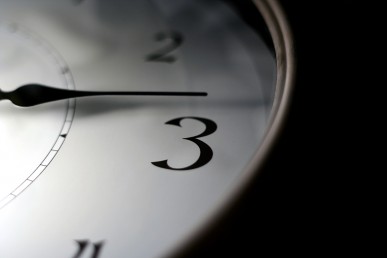I am UIC: Class time and academic performance
 In high school, I never gave much thought about whether the time class started had an effect on my academic performance. For four years, I had to be in school by 7:30 a.m., so waking up extra early and being wide awake during an 8 a.m. lecture was completely normal. I also always earned the grades I wanted. College, however, is quite different. You don’t have the same class start time every semester, or even every day, and I’ve definitely noticed a difference.
In high school, I never gave much thought about whether the time class started had an effect on my academic performance. For four years, I had to be in school by 7:30 a.m., so waking up extra early and being wide awake during an 8 a.m. lecture was completely normal. I also always earned the grades I wanted. College, however, is quite different. You don’t have the same class start time every semester, or even every day, and I’ve definitely noticed a difference.
Once my class start times began to vary at UIC, with some school days starting at 1:30 p.m., 8 a.m. classes were no longer for me. I’ve seen it reflected in my grades.
Sitting during an 8 a.m. lecture was difficult for me my sophomore year, from trying to stay focused during lecture, to struggling to get to class on time. Classes that begin at noon and after are what work best for me. Not only do I hardly find myself rushing to get things done, but also feel more energized and engaged during class, which I feel automatically leads to better quality work.
My academic experience is the opposite of findings from a recent St. Lawrence University study that showed that student GPAs dropped slightly for every hour a class started later, concluding that students who take classes earlier in the day have a better academic performance.
I decided to ask UIC students and an academic advisor about their thoughts on the findings, and they disagreed.
Nayeli Torres, a full-time student that works part time, said she feels more “energized” when her classes start in the morning and tends to participate less in evening classes because by that point during the day she feels “drained.” However, she explained that feeling tired and participating less in class is not because of class start time, but because she usually heads to her evening classes right after a five-hour shift at work.
Kimberly Cortes, a junior, did not see a correlation between academic performance and class start time either.
“I think academic performance depends on a student’s motivation,” Cortes said.
Shannon Julion, an LAS academic adviser, said she has noticed a link between academic performance and students’ class registration habits.
“I would say that there is a pattern with students who procrastinate during registration and academic performance,” Julion said. “Students who wait until the last minute to register put themselves at a disadvantage by not being able to get into the classes that they were suggested or that they want.”
With that being said, I think it’s safe to say that every student’s academic performance is different. Numerous factors weigh in on good or poor academic performance, and class time is only one of them.

Michelle García De La Vega is a senior double majoring in communications and Spanish. Among the things she loves doing most are drinking coffee and laughing. The moments she appreciates most in life involve family, friends, music, warm weather and experiential learning. Her goal is to travel someplace new every year and she aspires to one day be a conduit of news for her community.
